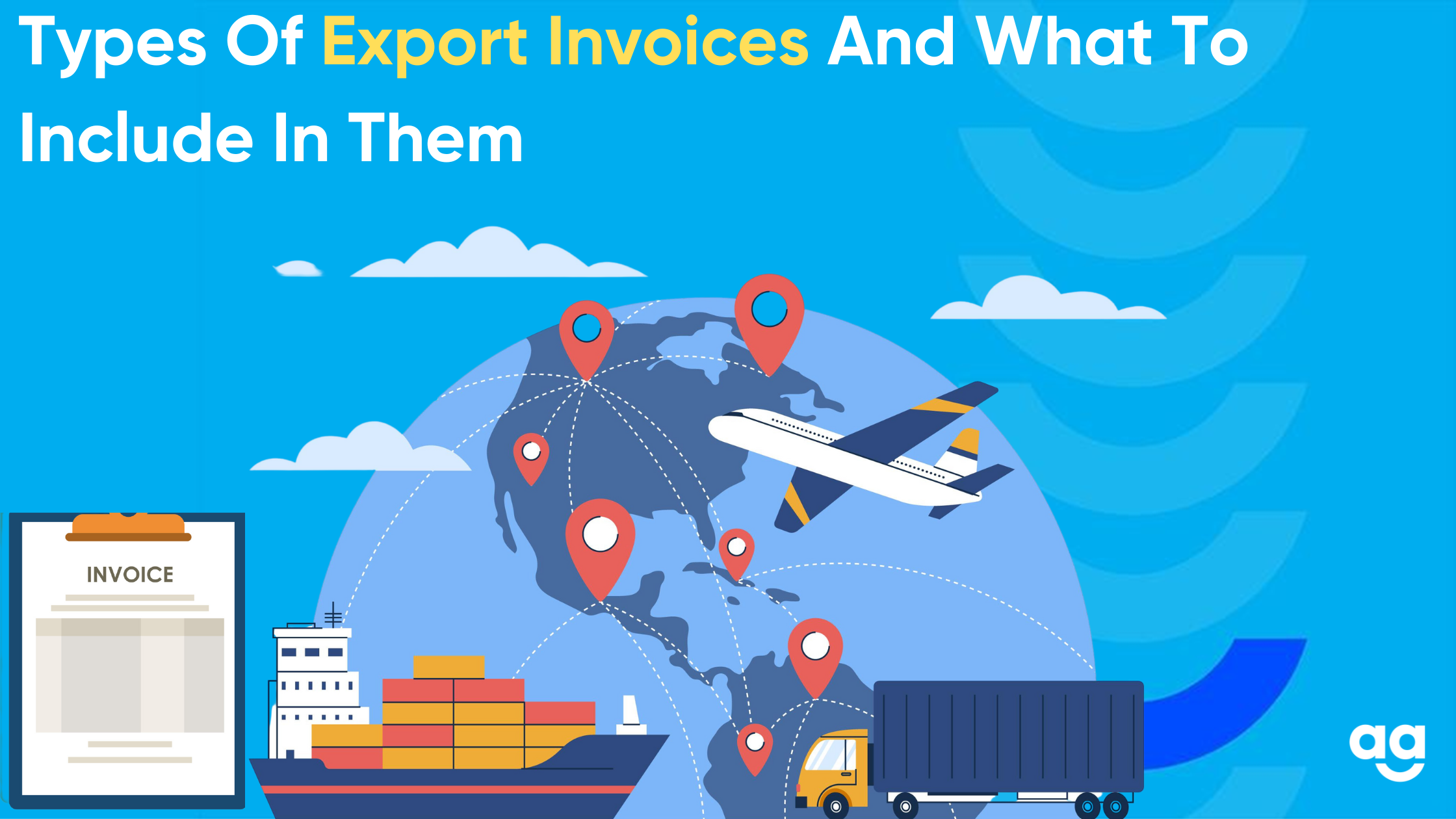Introduction
Invoices serve an essential function in the export process. In fact, the only export document that fully describes the entire export transaction is the invoice.
From the buyer to the goods forwarder, customs, the bank, and other parties engaged in the international transaction, everybody needs to know the information on the invoice, and should be filled out with correct information.
When not done properly, it can cause issues, delays, and conflicts.
Today, the Goods and Services Tax (GST) and related legislation that are necessary for intrastate and interstate bills are well known to all export enterprises, large and small. However, problems typically arise when the product is to be shipped outside India.
What is an Export Invoice
An export invoice is a document that lists the goods or services that an exporter provides together with the sum that the importer is responsible for paying, Along with several extra details, the format is rather resemblant to a standard tax invoice.
Importance of raising an Export Invoice
- The export invoice is an evidence document in case of an insurance claim.
- It shows that the specific transaction between the buyer and seller has taken place .
- It is a crucial component of the documentation relating to shipping.
- To determine the actual value of the items and determine the necessary taxes on them, the government authorities may consult the export invoice.
- The importer may make use of the export invoice to help the items cross customs in the country of destination.
Types of Export Invoices
1. Commercial Invoice
An alternative name for a commercial invoice is “Documents of Contents” because it often contains information required to generate all other documents. Although there is no standard format for commercial invoices, they typically contain the following information:
- Date
- Name and address of the seller and buyer
- Order number/ Performa number/ Invoice number
- The description of the goods, along with their quantity and quality
- Terms of sales
- Point of shipping and its destination
- Value of goods
- Advance paid
- Shipping mark or shipping number
- Other certifications required as per regulations
2. Consular Invoice
A certification from the consulate or embassy of the nation to which the products are being exported is required prior to the transportation of the goods abroad. The consular invoice is what it is known as.
The invoice’s main purpose is to give a precise account of the kind of commodities shipped, their quantity, value, and other details to make it simpler to determine the importer’s country’s duties. It speeds up the inspection procedure in the importer’s nation as the consulate there has already evaluated it.
So essentially, a consular invoice is a type of commercial invoice that undergoes detailed scrutiny and verification by the consul, who approves and signs it. The purpose is to ensure that the pricing is accurate, avoiding both overpricing and underpricing, while also exerting control over the imported goods entering the consul’s country.
3. Customs Invoice
Most nations, especially the United States, Canada require it. It must be filled out in the manner specified by the customs office of the importer’s nation. Identifying the customs import value at the port of destination is the main objective. The seller must provide details in a bespoke invoice in addition to the data in the commercial invoice, such as freight value, insurance value, packing costs, and so on.
4. Performa Invoice
It is the exporter’s initial proposal to a potential foreign buyer. It includes information on the kind and quality of the items, their cost, and other crucial details like weight and shipping costs. It is a preliminary invoice with a quotation, and after the customer accepts it, he sends a purchase order to confirm it.
5. Legalized Invoice
The importer’s country’s attorney, who is based in the exporter’s country, has legalized (stamped and certified) this invoice. The only distinction between it and a consular invoice is that the latter is in the required format, whereas the former is not. Typically, Middle Eastern nations demand it.
Documents required in an Export Invoice
- Name, address, and any relevant information, such as the GST number of the exporter.
- The name, shipping address, and billing address of the importer
- Product details, shipment type, and shipping costs
- The HTS (Harmonised Tariff Schedule) classification number
- The invoice’s issuing date, identification number, and total amount
- Country of manufacturing
- Value for conversion rates
- Information on product insurance
- The exporter’s or the authorized person’s physical or digital signature
Wrapping Up
In international trade activities, export invoices are essential documents. They contain crucial details for all parties involved, serve as proof of the exporter and importer’s transaction, and speed up the tax and customs clearance processes.







 Shipping
Shipping







